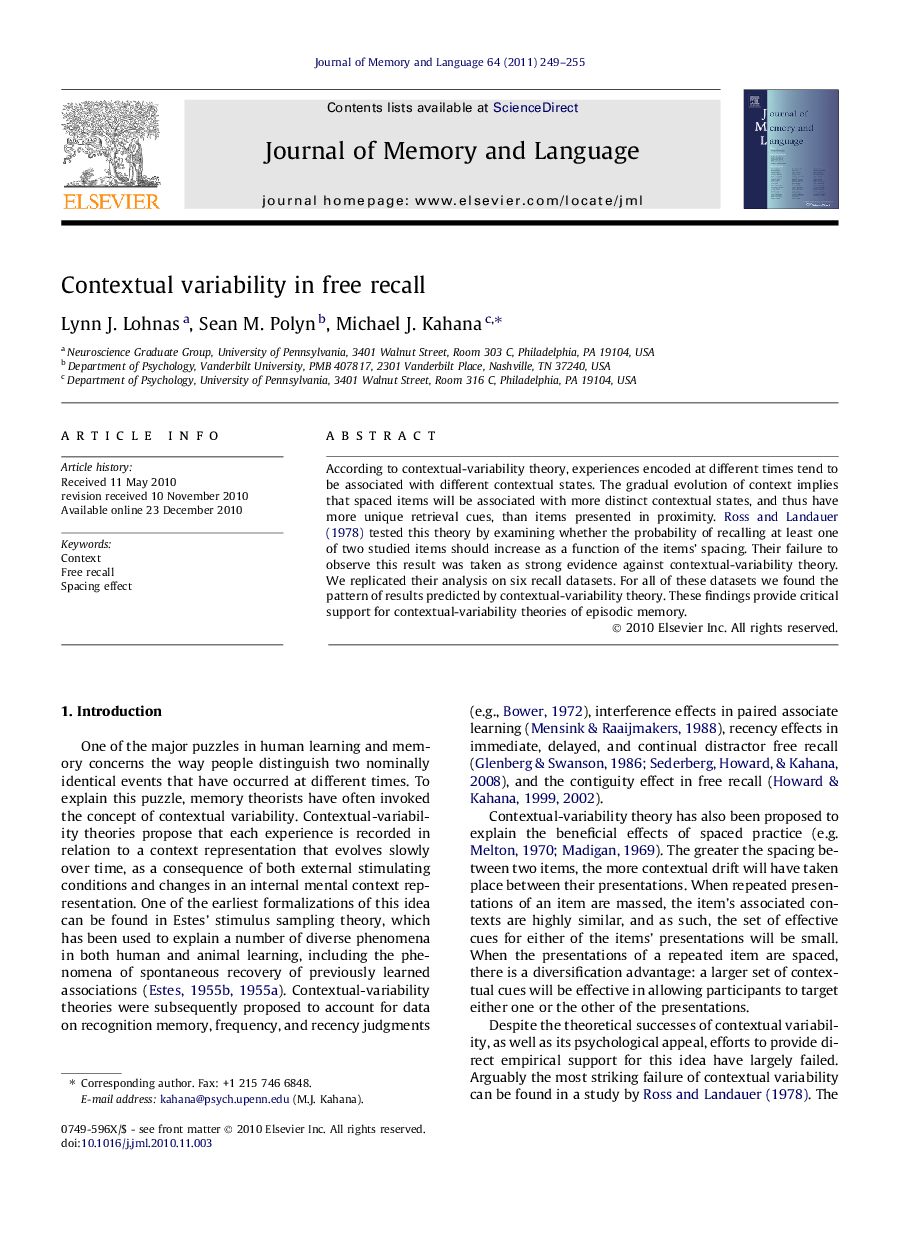| Article ID | Journal | Published Year | Pages | File Type |
|---|---|---|---|---|
| 932082 | Journal of Memory and Language | 2011 | 7 Pages |
According to contextual-variability theory, experiences encoded at different times tend to be associated with different contextual states. The gradual evolution of context implies that spaced items will be associated with more distinct contextual states, and thus have more unique retrieval cues, than items presented in proximity. Ross and Landauer (1978) tested this theory by examining whether the probability of recalling at least one of two studied items should increase as a function of the items’ spacing. Their failure to observe this result was taken as strong evidence against contextual-variability theory. We replicated their analysis on six recall datasets. For all of these datasets we found the pattern of results predicted by contextual-variability theory. These findings provide critical support for contextual-variability theories of episodic memory.
